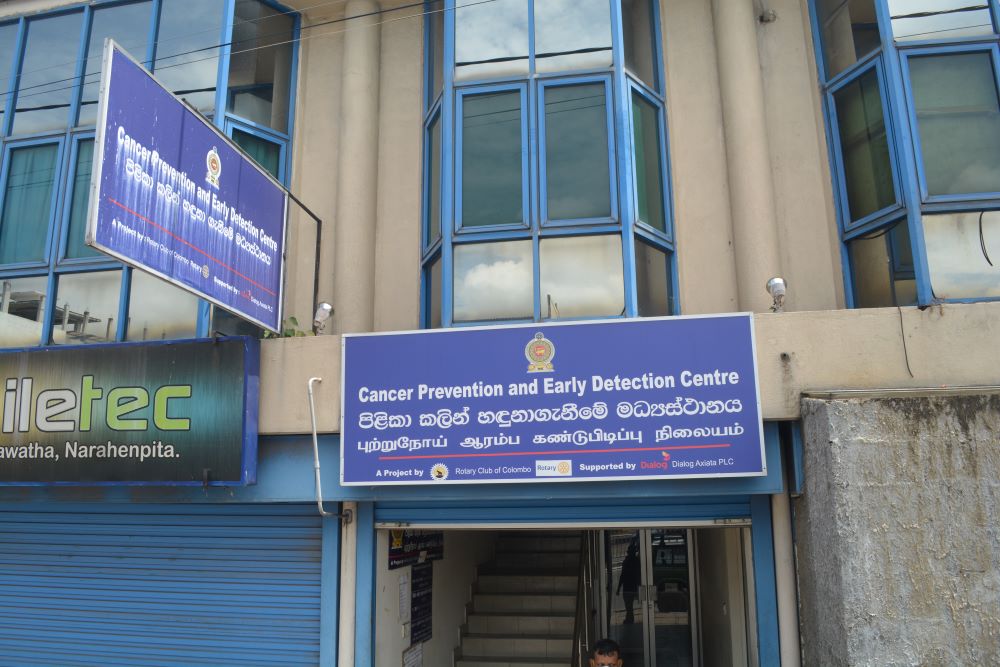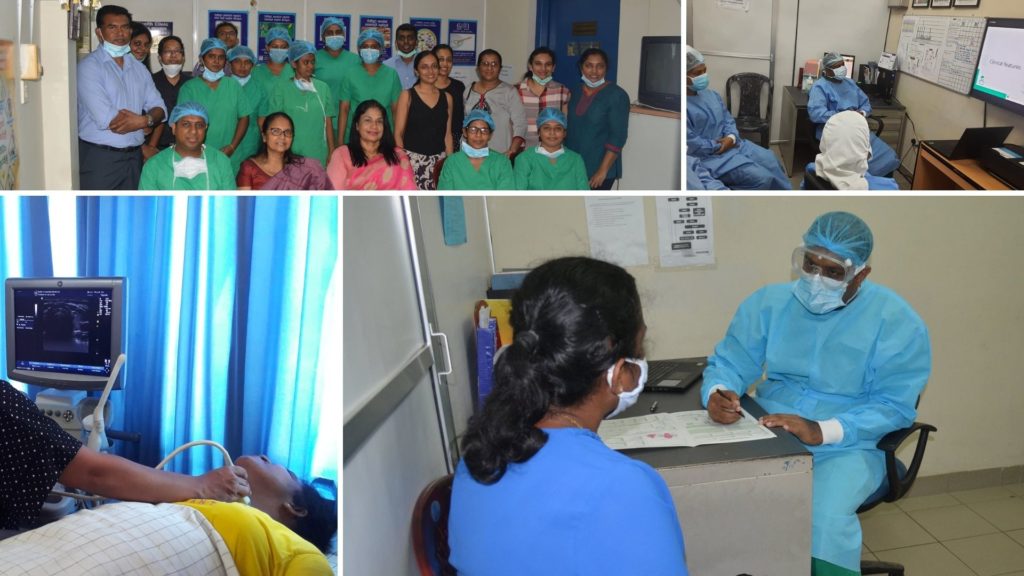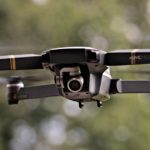The entire world is currently facing a global pandemic in the form of the coronavirus. However, the disease that we have all been fighting for the longest time, with no particular cure to be found in the foreseeable future is cancer. Way before the world faced this pandemic, the global cases of cancer were steadily on the rise with an estimate of 19.3 million new patients and 10 million deaths being reported in 2020 alone. In the same year, 35,863 cancer patients registered with Government Cancer Units in Sri Lanka. According to the Registrar General Department, cancer is the second leading cause of death in the country with an estimate of 90 cancer patients being discovered and around 40 daily deaths being reported.
Cancer is a disease that comes in various forms and might never have a proper cure. However, if detected early enough, the worst aspects of cancer can be avoided and the sooner treatment begins, the sooner the patient can recuperate. There are several places (general practitioners, cancer early detection centers, outpatient departments in government hospitals, healthy lifestyle clinics, breast clinics, well-woman clinics, hospitals in the private sector) that individuals go to get themselves screened for cancer. The Cancer Early Detection Center in Narahenpita is one such place.
The past, present and future
Following a detailed study of the cancer trends in Sri Lanka done by the World Health Organisation, the WHO made a recommendation to the Sri Lankan Ministry of Health. This resulted in the formation of the National Cancer Control Programme in 1980. The NCCP acted as the national focal point for the prevention and control of cancers.
The Medical Officer in charge of the Cancer Early Detection Center (CEDC), Dr. Dumindu Wijewardana speaking to ReadMe.lk said that the first CEDC in Sri Lanka was established under the public-private partnership of the National Cancer Control Programme (NCCP) and the Rotary Club of Colombo in 2004.

Accordingly, the Narahenpita Cancer Early Detection Center was the only CEDC to exist in Sri Lanka from 2004 until 2021.
“With the aim of establishing an early detection center in each province, we extended our facilities to Jaffna, Matara, Ratnapura, Hambantota and Vavuniya,” he added.
“The concept of the CEDC was typically named to improve the process of prevention and early detection of common and preventable cancers, such as breast, cervical and oral cancers through a fast-track method. At the same time, it aims to promote public awareness of the main risk factors, healthy behaviors, and services available. CEDCs are meant to be attended by any individuals who wish to get checked for cancer. Considering the valuable services provided through this concept, the National Advisory Committee has emphasized the need to establish such Cancer Early Detection Centers in each province, and the process is currently underway,” he further stated.
Early detection: how does it work?
Although the general consensus is that once you are diagnosed with cancer you have hit the point of no return, this is not always the case. While it is true that a perfect cure for cancer might not be in sight, early detection can lead to successful treatment and full recovery.
“Some of the commonly diagnosed cancers are preventable and may even be cured completely if detected and treated at early stages,” Dr. Wijewardana said, “In the CEDC, we focus on two types that can be detected at a fairly early stage; Breast Cancer and Cervical Cancer.”
“Since Cervical Cancer takes about ten to 15 years to develop, if we can detect it early it can be treated successfully. These are done via Screening Tests.”
There are two components to early detection – early diagnosis and screening. Screening tests are used to detect cancer at an early stage when the cancer is easier to treat.
Mammogram machines are designed to take a closer look at breast tissue and only breast tissue. These machines x-ray at a lower dose than the x-rays used in other parts of the body. The machine consists of two plates that flatten the breasts in order to spread the tissue apart, using less radiation and providing a picture of better quality.

There are two types of mammogram machines – 2D and 3D. Three-dimensional mammography takes many low-dose x-rays while moving in an arc around the breast. These images are then put together into a series of thin slices. A two-dimensional mammogram – which is what is available at the CEDC – compresses each breast and takes in a flat image from two different angles.
At the CEDC, the screening for Breast Cancer will be done after the initial registration and consultation. The methods of screening vary from a Clinical-Breast Examination to an Ultrasound Scanning to a Mammography where available and appropriate.
Screening for Cervical Cancer includes a vaginal Examination with speculum (if and when appropriate) and/or a Pap smear and HPV-DNA testing. Further, the CEDC also provides screening for Oral Cancer as well as referrals for specialist opinions (Breast Clinics, Gynecology Clinics, General Surgical Clinics, and Genetic Counseling Clinics.)
Service process in CEDC
In Sri Lanka, cancer services are mainly provided by the state, with the Maharagama Apeksha Hospital in the lead. Similarly, it is fairly easy to simply walk into the CEDC and make an appointment for a diagnosis. According to Dr. Wijewardana, every client who visits the CEDC has the opportunity to have a consultation with a doctor, to discuss and identify any risks of cancer. The screening process including clinical breast examination, oral examination by a dental surgeon, ultrasound scans, mammography, Pap smear, and HPV-DNA testing referring for specialist opinions would be done, depending on the information gathered during the consultation.
“It used to be that a patient could simply walk into the clinic for an appointment, but after the COVID situation we have set up an appointment system online and over the phone. There is a tab on the NCCP website to make an appointment with a clinic.”
“A patient can contact us via email- [email protected] or call us on +94113259227 between 8.30 am to 3.30 pm on Weekdays to place their appointments.”
Challenges for the future
“We usually get around 20 to 25 appointments a day. We have given some slots for walk-in patients as well,” Dr. Wijewardana said adding that the numbers can be much higher if only they had the resources.
“We need the human resources in order to make more of a difference. At the moment we’re only doing less than half of what we can actually achieve due to the lack of resources, mainly the lack of human resources.”
Dr. Wijewardana and his team make a great effort to ensure that cancer – the types that can be treated – if detected early on and received the proper treatment. While people are more aware of the CEDC due to social media such as Facebook and Youtube, the potential to detect cancer early and decrease the mortality rate is much higher. “The diagnosis itself does not take a long time. Once the tests are conducted and if the cancer is detected, it is simply a matter of treatment and then the patient is as healthy as ever.”
The establishment of CEDCs island-wide would provide equitable cancer early detection services for all Sri Lankans, by minimizing the waiting lists and increasing accessibility to the relevant healthcare services. Thus, with early detection and timely diagnosis, the statistics for cancer can be overturned into positive numbers rather than mortality rates.





GIPHY App Key not set. Please check settings